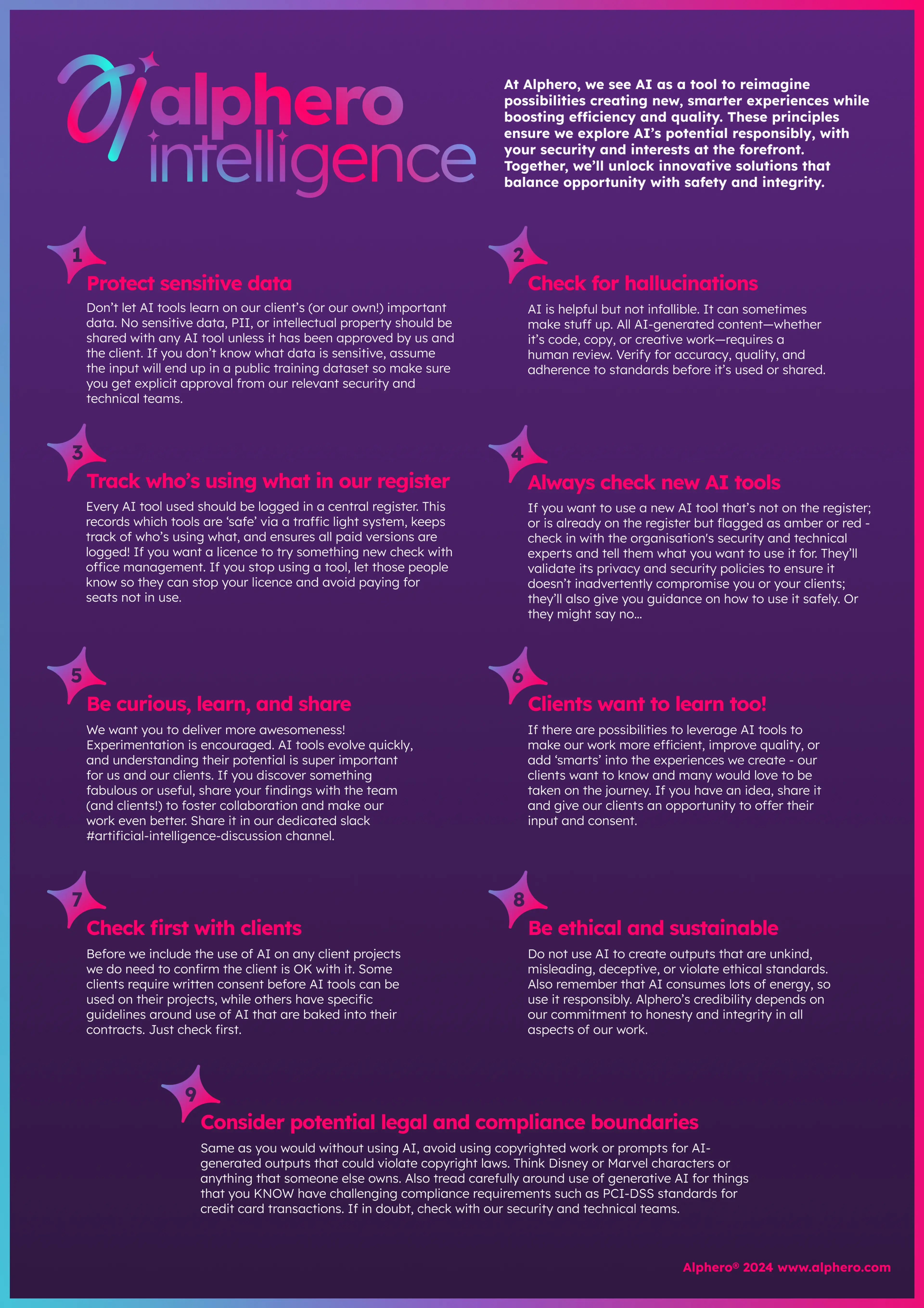
As part of our visioning for 2030 we have been doing a lot of work looking outwards at the likely direction the digital space might take given the impact of AI on not just how we work but in the nature of the experiences we create.
It's clear we're all in line for a profound shift. As part of our own journey of discovery I have actively encouraged everyone at Alphero to see how their work might be made more efficient, made smarter. Or even disappear.
We are exploring the potential to make our work more efficient, to improve quality, and incorporate AI-cleverness into anything we imagine and build with our clients.
Our team is very conscious that along with the potential for radical positive impacts, there are a lot of hooks in the tail when using AI products and tools. We need to balance the importance of avoiding bias, keeping both us and our clients (and their customers) safe, while encouraging exploration and experimentation - and practical use.
There's a few things we are doing at Alphero as part of this journey:
- We do have a comprehensive AI policy (created by Brendon, our Principal Security consultant)
- We are actively supportive of the team exploring the potential for awesomeness
- We track every AI product and tool use at Alphero on a register, that the team are actively using and experimenting with, and Brendon or a delegate assesses each one based on a traffic light framework (e.g. if it's on the list and green - go for it, if it's amber or red that's not a no, but discuss with him first because it might be OK)
- We won't use AI to do client work or bake into any of their solutions without express permission from each client.
- We are currently 45 (and counting) AI tools and products that the team are exploring or actively using.
We have a set of 9 AI principles for our team to follow and share these with clients (and the world as it happens!)
We know that most of our clients are actively looking at how to incorporate AI tools into their own work practices. A big gap tends to be the identification of practical use cases for AI that can be prototyped and piloted.
And on a final note. I'm not saying we have all the answers (who does?!) We do however feel we getting a bit of a handle on where things might go over the next few years, and how the experiences your clients are delivering for their customers and staff might evolve.
We've also been experimenting with a workshop structure for helping teams to ideate use cases for AI which is a bit of fun - with the objective to then bring the outcomes to life in shareable visualisations. Get in touch if you'd like to chat about these. Or our principles. Or anything really...

